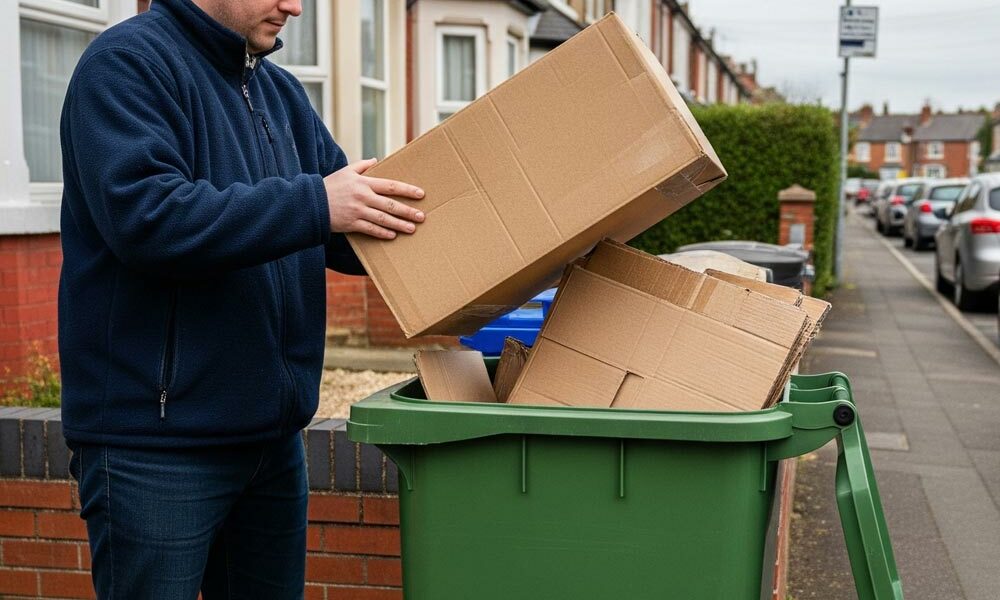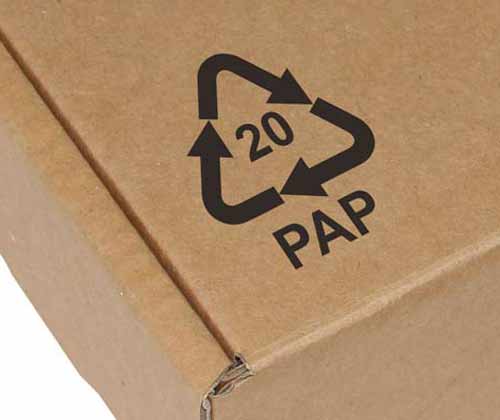
Legal requirements for sustainable packaging
There are numerous sustainable packaging regulations that extend well beyond simply containing or protecting products during transportation.
For example, frameworks like the Extended Producer Responsibility (EPR) and the Packaging (Essential Requirements) Regulations 2015 place accountability on businesses to minimise waste, reduce environmental impact, and ensure packaging meets legally defined standards. This is reinforced by financial mechanisms like the Plastic Packaging Tax, as well as technical requirements set out in British Standards and international ISO standards. These collectively cover everything from material composition, reuse, and recyclability, through to energy recovery and organic recycling.
At GWP, we have extensive experience in designing and manufacturing packaging that complies with this evolving regulatory landscape. Our expertise enables our clients to meet legal obligations, reduce environmental impact, and adopt sustainable practices that align with both UK and international standards.
Important note:
This page aims to provide a comprehensive list of regulations that could potentially apply to sustainable packaging. It also indicates which regulations may affect the packaging that you purchase or are looking to source from GWP Group, and areas where we are currently unable to assist.
Please also note that, as all scenarios and applications vary, not all regulations are likely to apply to all sustainable packaging solutions. Please get in touch with us and/or speak with the appropriate regulatory body for further clarification if needed.
The information provided on this page was last updated on 7th November 2025, and is correct to the best of our knowledge at the time of writing. Due to the evolving nature of the regulations detailed on this page, our packaging experts will periodically review and update this content as required.
Table of contents
The following regulations apply to sustainable packaging in the UK. Please note this list is not exhaustive, and is subject to change as regulations are updated, introduced or replaced. Not all regulations apply to all forms of sustainable packaging.
- Extended Producer Responsibility (EPR)
- The Packaging (Essential Requirements) Regulations 2015
- Plastic Packaging Tax
- BS EN 13428:2004 – Packaging: Requirements to Specific Manufacturing and Composition
- BS EN 13429:2004 – Packaging: Reuse
- BS EN 13430:2004 – Packaging: Recoverable by Material Recycling
- BS EN 13431:2004 – Packaging: Recoverable by Energy Recovery
- BS EN 13432:2000 – Packaging: Requirements for Packaging Recoverable Through Composting and Biodegradation
- ISO 18601:2013 – Packaging and the Environment: General Requirements
- ISO 18602:2013 – Packaging and the Environment: Optimisation of the Packaging System
- ISO 18603:2013 – Packaging and the Environment: Reuse
- ISO 18604:2013 – Packaging and the Environment: Material Recycling
- ISO 18605:2013 – Packaging and the Environment: Energy Recovery
- ISO 18606:2013 – Packaging and the Environment: Organic Recycling
Extended Producer Responsibility (EPR)
Extended Producer Responsibility (EPR) is a new legislation that the UK government is rolling out for packaging. Producers will now be responsible for the full net cost of managing packaging once it becomes waste.
- It requires obligated producers to collect and report detailed packaging data.
- It will introduce modulated fees to incentivise more recyclable and sustainable packaging designs and materials.
- It shifts the cost of collection, sorting, and disposal from local authorities to producers.
GWP Group can help our customers comply with their legal responsibilities, as specified in EPR legislation, by supplying detailed product and usage statistics. Please note we are not able to submit EPR figures/returns directly for our customers, and doing so remains their responsibility.
GWP Group also fulfils all of our own responsibilities under the EPR legislation (being responsible for customers with annual turnover between £1 million and £2 million which supply more than 25 tonnes of packaging, or have annual turnover of more than £1 million and supply more than 25 tonnes and no more than 50 tonnes of packaging in the UK). This includes the submission of figures and payment of applicable taxes and fees.
More information
The Packaging (Essential Requirements) Regulations 2015
The Packaging (Essential Requirements) Regulations is the standard setting out the essential requirements for all packaging places on the UK market, the three main requirements are:
- Packaging must be reduced to the minimum volume and weight without compromising on product safety and hygiene.
- Packaging must be designed to allow reuse, recovery, or recycling.
- Levels of heavy metals, like lead, cadmium, mercury, and hexavalent chromium are restricted.
GWP Group adheres to the three main requirements as specified in the Packaging (Essential Requirements) regulations. Our design process minimises volume and weight of material by default, allows for easy recovery and recycling, and avoids the use of heavy metals. We can also provide a range of reusable packaging for appropriate applications.
More information
Plastic Packaging Tax
The Plastic Packaging Tax, introduced in 2022 is a tax that applies to plastic packaging produced in or imported into the UK that does not contain at least 30% recycled content.
- The tax is currently sat at £223.69 per metric tonne (as of 2025).
- It creates a financial incentive to increase recycled plastic content.
- It supports demand for recycled polymers and reduces virgin plastic use.
GWP Group can help our customers with regards to the Plastic Packaging Tax in several ways. Firstly, we can supply detailed figures regarding weights of qualifying products for reporting purposes. Secondly, we can help customers switch to packaging with higher recycled content (and advise on the available options). Thirdly, we can also help customers transition to non plastic alternatives in many scenarios.
GWP also fulfil our own responsibilities relating to the Plastic Packaging Tax, including reporting and payment fo applicable fees.
More information
BS EN 13428:2004 - Packaging: Requirements Specific to Manufacturing and Composition
BS EN 13428:2004 is the standard that sets the requirements to minimise packaging weight and volume while ensuring functionality.
It supports the Packaging (Essential Requirements) Regulations 2015 and reduces environmental impact by cutting resource use.
GWP Group designs any packaging we supply to minimise weight, volume and material use without compromising fucntionality and performance by default.
More information
BS EN 13429:2004 - Packaging - Reuse
BS EN 13429:2004 is the standard that defines the requirements for packaging designed to be reused multiple times. It reduces single-use waste through encouraging refill and return systems and supports businesses developing circular packaging methods.
GWP Group offers a range of reusable packaging products to reduce the requirment for single trip options. This includes Correx returnable totes and shipping boxes, a range of protective cases and custom built timber crates. Please note however that not all applications are suitable for the use of reusable packaging. Please speak with a GWP adviser for further guidance.
More information
BS EN 13430:2004 - Packaging: Recoverable by Material Recycling
BS EN 13430:2004 is the standard that specifies the requirements for packaging that can be collected, sorted, and recycling effectively.
It aligns with the Extended Producer Responsibility (EPR) legislation’s focus on recyclability and helps companies design packaging that fits within recycling infrastructure.
GWP Group can assist our customers in complying with BS EN 13430:2004. Our design team can create packs that are easy to recycle and provide detailed information on the recyclability of different materials. Customers packaging can, on request, feature appropriate recycling aids such as printed recycling symbols (e.g. PAP 20, mobius loop, etc.) and supporting information.
More information
BS EN 13431:2004 - Packaging: Recoverable by Energy Recovery
BS EN 13431:2004 is the standard that covers packaging that is suitable for energy recovery (incineration with energy capture):
- It recognises energy recovery as a last resort when recycling isn’t feasible.
- It ensures packaging delivers net positive energy output.
- It supports compliance with the waste hierarchy.
While GWP does not recommend or encourage energy recovery, the majority of packaging we supply can be recovered in this way.
More information
BS EN 13432:2000 - Packaging: Requirements for Packaging Recoverable Through Composting and Biodegradation
BS EN 13432:2000 is the standard that sets the criteria for compostable packaging, including disintegration during composting and the absence of harmful residues.
- It ensures “compostable” claims are scientifically valid.
- It is required for packaging to be certified industrially compostable.
- It prevents greenwashing by standardising compostability definitions.
GWP Group supplies several types of packaging that are biodegradable/compostible. We can also support customers with certification processes (e.g. for industrial compostable packaging). Please note GWP is unable to conduct or manage such certification processes, which remain the responsibility of our customers.
More information
ISO 18601:2013 - Packaging and the Environment: General Requirements
ISO 1860:2013 is an international standard that acts as the umbrella standard linking ISO 18602 – ISO 18606 and defines the general principles for environmentally sustainable packaging. It provides a framework for lifecycle thinking in packaging and encourages businesses to integrate sustainability systematically.
GWP Group can help customers work towards ISO 18601:2013. We aim for sustainability to be an inherent part of both our design process and wider business.
More information
ISO 18602:2013 - Packaging and the Environment: Optimisation of the Packaging System
ISO 18602:2013 is an international standard that focuses on optimising packaging to balance protection, functionality, and environmental impact.
- It promotes right-sized and lightweighting packaging.
- It reduces waste from unnecessary materials.
- It complements UK minimisation requirements.
Although GWP Group is not accredited to ISO 18602:2013 specifically, by designing and maufacturing to bespoke requirements (rather than supplying standard products) it means our customers packaging is the optimum size/weight by default. This approach also minimises material use.
More information
ISO 18603:2013 - Packaging and the Environment: Reuse
ISO 18603:2013 is an international standard that specifies the criteria for reusable packaging systems and aligns with the UK/EU push towards reusable packaging targets.
It provides measurable indicators for reuse (number of cycles and collection systems) and supports refillable models in retail and logistics.
GWP Group supplies a number of reusable packaging options, including Correx products (e.g. totes and shipping boxes for logistics). As such we can assist customers looking to achieve ISO 18603:2013 certification for their business.
More information
ISO 18604:2013 - Packaging and the Environment: Material Recycling
ISO 18604:2013 is the international standard that links directly to Extended Producer Responsibility (EPR) recyclability fees and details how packaging should be designed for recycling and how to demonstrate recyclability. It supports businesses aiming for UK and export compliance and harmonises design criteria internationally.
GWP Group can support customers looking to comply with ISO 18604:2013 at their business.
More information
ISO 18605:2013 - Packaging and the Environment: Energy Recovery
ISO 18605:2013 is the international standard that specifies requirements for packaging that is suitable for energy recovery. It is a standard that reinforces waste hierarchy and ensures packaging provides a net calorific value when it is recovered. It is used when recycling isn’t technically or economically feasible.
The packaging that GWP Group supplies can be recovered through means other than energy recovery. As such, we do not typically provide information or support for this standard unless explicitly asked to by our customers.
More information
ISO 18606:2013 - Packaging and the Environment: Organic Recycling
ISO 18605:2013 is the international standard that sets the requirements for packaging recoverable through composting and anaerobic digestion. It aligns closely with BS EN 13432 and validates “compostable” packaging claims globally, ensuring packaging breaks down without harming the soil quality.
GWP Group can assist customers looking to make compostable claims through the provision of samples and materials for testing as required. Please note GWP does not provide a verification or testing service for such claims.
More information
Quotes, technical info and advice
Speak with our sustainable packaging experts
The information on this page has been collated, checked and approved by several of our packaging experts:












































